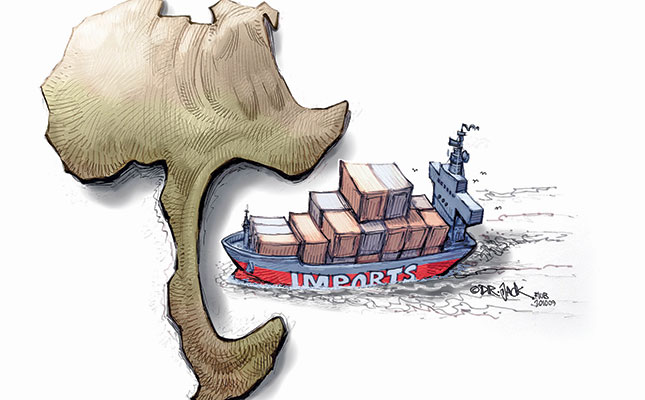
The Strategic Plan for South African Agriculture calls for a united and prosperous agricultural sector. The document states that the government is committed to successful land reform through the productive use of transferred land as well as the provision of training and support services to new farmers. It also states that new farmers must be empowered to play a constructive role in the development of agriculture and that the private sector, including agribusinesses, farmers, co-operatives and farmer organisations, forms an integral part in fostering empowerment and participation.
This is where mentors can play a pivotal role in the successful establishment of new farmers. With the support from the University of Pretoria, I undertook a research study of some of the successful land reform mentorship projects in South Africa. Fifteen mentors and 21 new farmers involved in successful mentorship projects were identified for the project. I visited and interviewed each mentor and new farmer personally, and their success stories showed that mentoring of new farmers is a key factor in successful land reform.
Mentorship
Our research has shown that there are currently many successful mentorship programmes managed by role players in the private sector such as agribusinesses, financial institutions, commodity organisations, organised agriculture and individual farmers. It became clear early on that such programmes need to be structured, managed and evaluated continually. Mentorship calls for a fine balance; the mentor should not end up doing everything for the mentee.
South Africa needs a structured mentorship model in each province. These should provide for clear selection criteria and guidelines for mentors and new farmers. There are several scientific and tested screening instruments available that can be used for this purpose. A lack of proper business plans, poor selection of mentors and new farmers, and a lack of finance, infrastructure, and equipment to ensure sustainable and profitable farming were a few of the factors we identified as reasons for failures. This underlines why a formal organisation for mentors is important.
It is recommended that such an organisation be kept within the fold of organised agriculture. Its aims should be the development of business plans for mentorship projects, ongoing evaluation of the process, sourcing sufficient financing, and providing a forum for mentors and other role players to engage on a structured basis. Free State Agriculture has taken the lead and has recently facilitated the establishment of an organisation to support mentors and programmes.
Stages of mentorship
Four separate stages of the relationship between mentors and mentees have been identified.
- The first is a prescriptive relationship where the mentor devotes more time to the mentee and provides detailed guidance.
- In the second stage is the persuasive relationship, where the mentor will actively persuade the mentee to seek challenges and find answers.
- The third stage is the collaborative relationship, where the mentee has sufficient experience to actively co-operate and jointly solve problems with the mentor.
- The fourth stage is the confirmative relationship; here, the mentee has gained enough experience to work independently but with the mentor as advisor.
Working together as a team
A successful mentor is someone who is knowledgeable, respectful, trustworthy, willing and committed. The successful mentee, on the other hand, is willing to learn, will listen and implement what he is advised to do, and is hard-working. The biggest stumbling blocks in the relationship between a mentor and the mentee include a lack of commitment by either or both, a lack of time on the side of the mentor and unrealistic expectations by both sides.
The new farmer should not expect too much from the mentor and must be willing to implement his advice. Strong leadership is essential in the case of farming businesses owned by a group of new farmers. Conflict between the members of a group of new farmers is counter-productive.
No land reform and mentorship programme can be successful without a viable, sustainable business plan. There is enough evidence of several land reform projects with mentorship programmes that have failed because of an unrealistic plan or a lack of plan in the first place.
Mentors and new farmers in co-operation with other role players should develop the business plan together. Both the mentor and new farmer must have the same understanding of the business plan and develop a common vision of the future of the farming enterprise.
Successful projects
We visited a number of successful mentorship programmes and found that the majority of respondents indicated that it took approximately three years before the farming business became financially successful. In some cases, it took as long as five years. This confirms that sustainable farming as a business is not an easy road to travel and mentorship is not a quick-fix solution. The development of a sustainable farming operation with the support of a mentorship programme is a long-term venture.
The mentor and mentee should work as a team, not on a boss and servant basis. Mentees made it clear that they needed a mentor who would listen and do his best to understand them. Both indicated that they had experienced a great deal of uncertainty, anxiety and even fear at the beginning of the programme.
A review of the literature indicated that structured programmes needed to last between five and 10 years. At the end, it will be the new farmer who will need the courage to end the official mentorship programme and continue on his own. The research also showed that in 85% of the successful projects, the programme was initiated by either the mentor or the mentee. Only 15% was initiated by outside parties.
It was also clear that the successful programmes were based on mutual respect and commitment. The farmer acknowledged the mentor’s know-how, skills and abilities, while the mentee acknowledged the farmer’s eagerness to become successful. They stuck to the programme and by doing so, built up trust.
In the majority of the long-term mentorship projects, mentors and new farmers formed business partnerships. In some, the mentor obtained shares in the farming enterprise. If the new farmer loses money, the mentor also loses money. Where there was a profit, they shared it. The new farmer nevertheless remained responsible for the management of his farm.
Finally, in some of the most successful projects, both mentors and new farmers emphasised that it was their faith in God that made their programmes a success. – Annelie Coleman
Phone Dr Fanie Terblanche on 012 420 4623.












